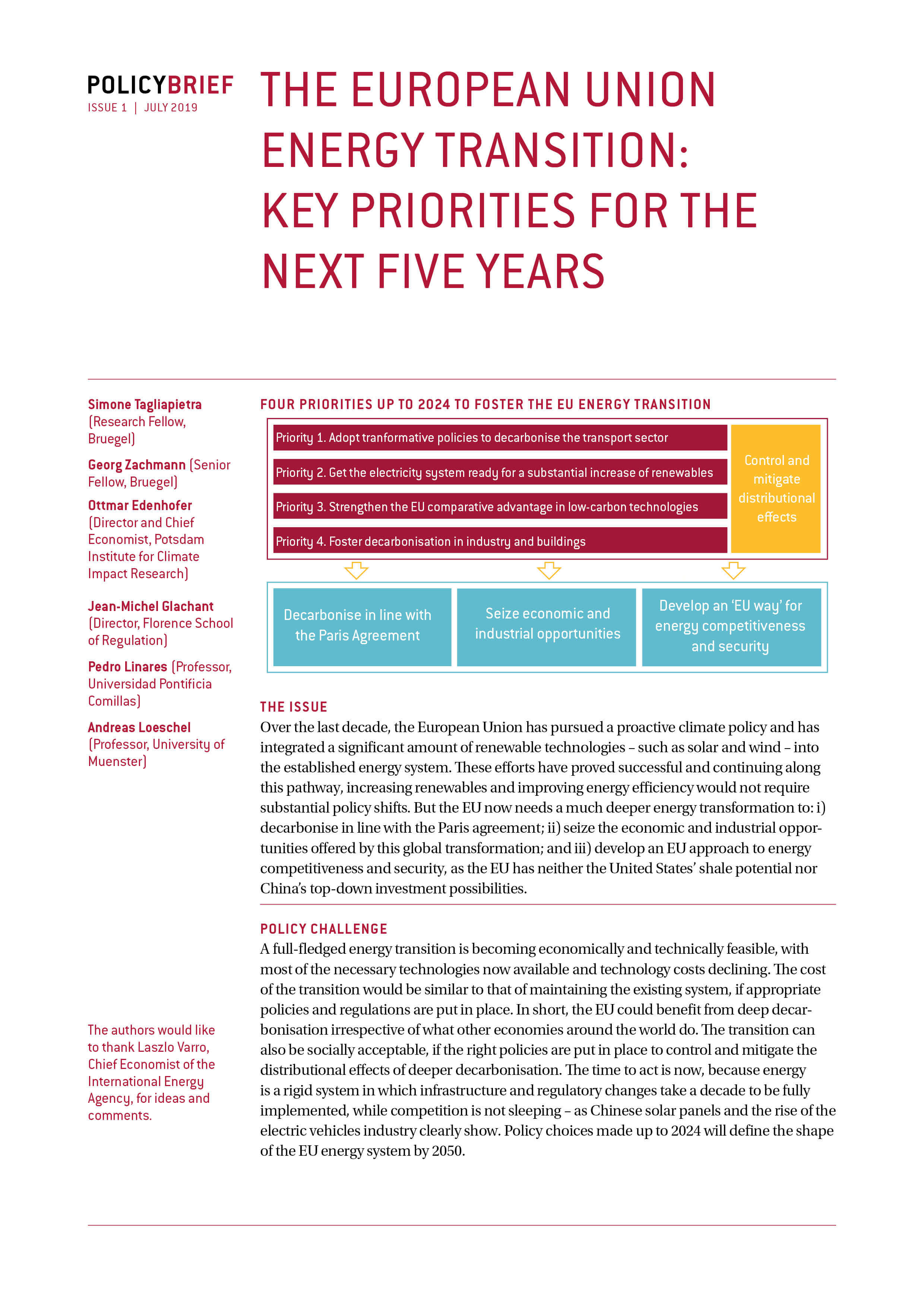Policy Brief
The European Union energy transition: key priorities for the next five years
The new members of the European Parliament and European Commission who start their mandates in 2019 should put in place major policy elements to unleash the energy transition. It is becoming economically and technically feasible, with most of the necessary technologies now available and technology costs declining. The cost of the transition would be similar to that of maintaining the existing system, if appropriate policies and regulations are put in place.
The issue
Over the last decade, the European Union has pursued a proactive climate policy and has integrated a significant amount of renewable technologies – such as solar and wind – into the established energy system. These efforts have proved successful and continuing along this pathway, increasing renewables and improving energy efficiency would not require substantial policy shifts. But the EU now needs a much deeper energy transformation to: i) decarbonise in line with the Paris agreement; ii) seize the economic and industrial opportunities offered by this global transformation; and iii) develop an EU approach to energy competitiveness and security, as the EU has neither the United States’ shale potential nor China’s top-down investment possibilities.
Policy challenge
A full-fledged energy transition is becoming economically and technically feasible, with most of the necessary technologies now available and technology costs declining. The cost of the transition would be similar to that of maintaining the existing system, if appropriate policies and regulations are put in place. In short, the EU could benefit from deep decarbonisation irrespective of what other economies around the world do. The transition can also be socially acceptable, if the right policies are put in place to control and mitigate the distributional effects of deeper decarbonisation. The time to act is now, because energy is a rigid system in which infrastructure and regulatory changes take a decade to be fully implemented, while competition is not sleeping – as Chinese solar panels and the rise of the electric vehicles industry clearly show. Policy choices made up to 2024 will define the shape of the EU energy system by 2050.









